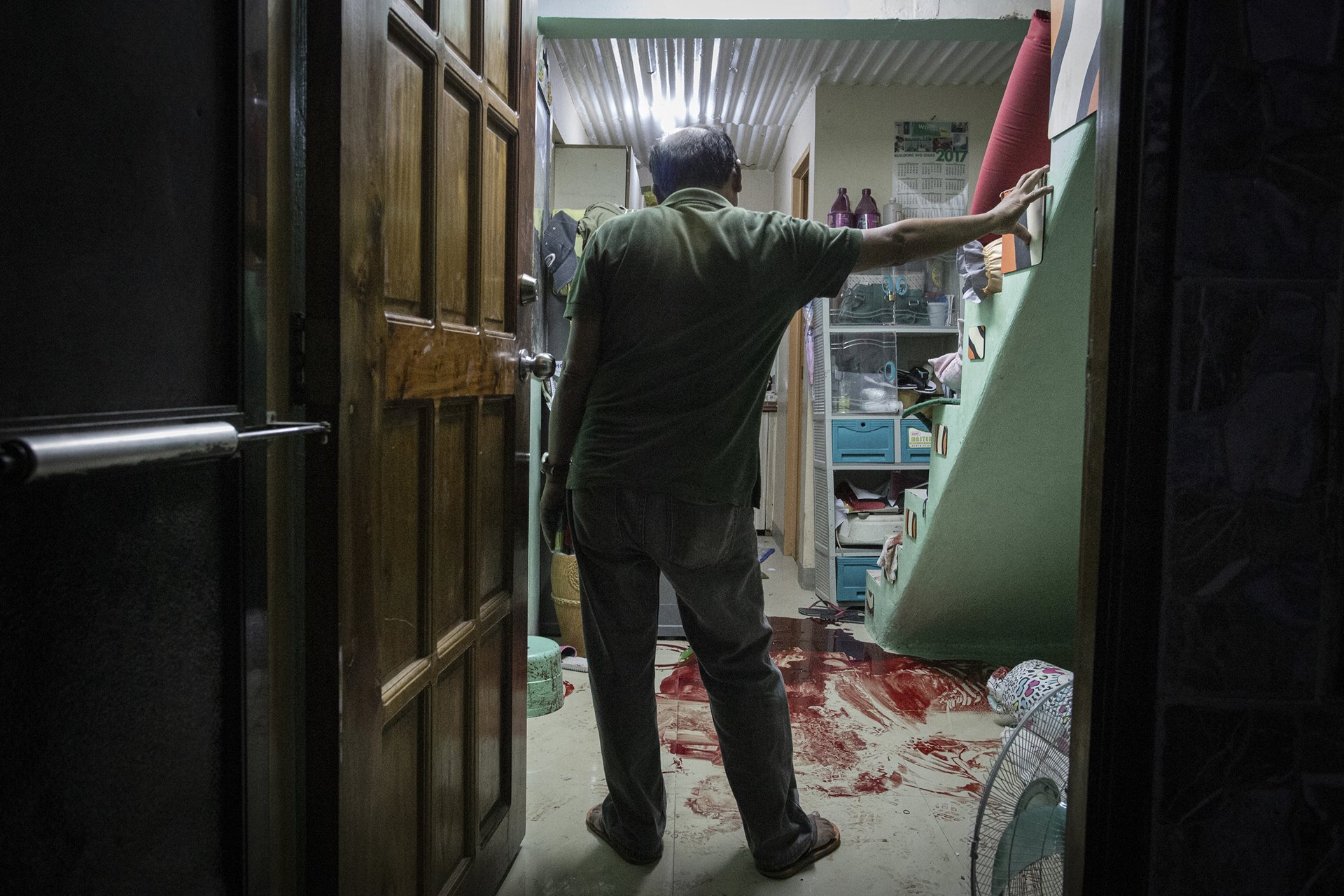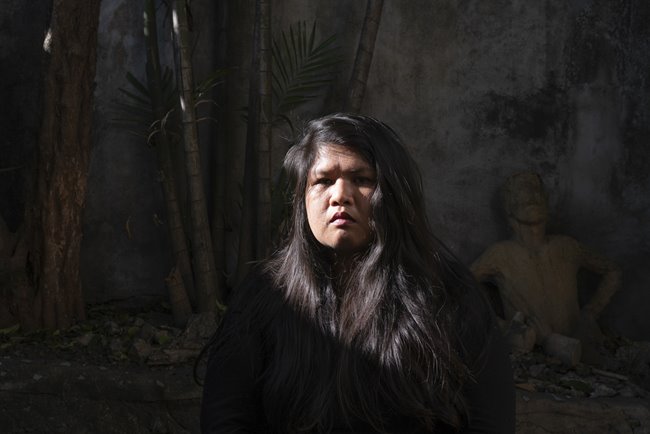Marianito Libo-on surveys the room where his son Jomar, who worked as an electrician, was killed moments before, in Quezon City, the Philippines. Five masked men barged into Jomar Libo-on’s home as he was watching TV, and shot him in front of his wife, son and daughters.
This project documents the Philippines‘ drugs offensive from its outset, capturing its broadening focus and the continued impact on families involved.
Soon after taking office in June 2016, Philippine president Rodrigo Duterte began a concerted ‘war on drugs’, repeatedly ordering attacks against suspects. A surge of extrajudicial killings followed, perpetrated not only by police but also by masked vigilantes and other civilians. The Philippine National Police admits to more than 6,000 such deaths to date; local human rights organizations put the figure at 30,000. The police appear to act with impunity, with only a handful of these killings being seriously investigated and almost no prosecutions.
According to the United Nations Office on Drugs and Crime, the Philippines has a low prevalence of drug use compared to the global average. Human rights organisations such as the World Organization Against Torture (OMCT) and Amnesty International say killings often target political opponents, activists, or marginalized groups. Amnesty International reports that executions are mostly directed at low-income communities. A Human Rights Watch report found that many of the killings that police attributed to drug gangs to be a veneer to shield themselves from culpability for executions carried out without legal process – an accusation the police refute, claiming self-defense.
In 2020, Fatou Bensouda, then the prosecutor of the International Criminal Court, said there was a “reasonable basis to believe” that crimes against humanity had been committed in the Philippines in connection with President’s Duterte’s drugs offensive. In July 2022, Duterte's successor President Ferdinand Marcos Jr, announced a refocus of the anti-drug offensive onto rehabilitation, however, killings continue and reforms have not yet been made to rehabilitation programs, according to Human Rights Watch.
Are you a photographer and/or passionate about press freedom? Sign up for our newsletter to stay updated on our annual contest and to hear about exhibitions near you.

